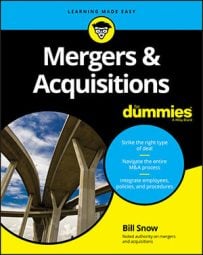Depending on the M&A deal, contingent payments such as earn-outs, Seller notes, and Buyer stock may be part of the Seller’s proceeds. After the deal is finalized, these contingent payments will require ongoing contact between Buyer and Seller.
As a Seller, stay on top of a Buyer’s obligation to you regarding contingent payments. If the Buyer owes you information about an earn-out or misses a payment on a note, speak with your legal advisors about the best course of action. You should avoid being litigious, but you may have to sue if you exhaust all other options.
How to maximize the M&A earn-out
Earn-outs can be the trickiest of all contingent payments. Seller is trusting Buyer provide necessary and accurate documentation regarding the specifics of the earn-out. The key to the earn-out is how it’s crafted and defined in the purchase agreement.
Simplicity is the best course of action; avoid using a complex formula for calculating the earn-out. The more complex the earn-out, the more calculations involved and the greater the chance Buyer and Seller will disagree.
For Sellers, the best chance at influencing the earn-out occurs if they remain with the company as an employee and have a direct impact on the earn-out metrics. For example, a Seller can impact an earn-out that’s based on top line revenue if he stays employed in a sales position. But if the Seller is leaving the company after close, he probably has little or no control over the earn-out.
How to collect the note after an M&A deal
If Seller agrees to accept a note, he becomes a creditor of the company, and Buyer is therefore legally obligated to pay that note (as opposed to an earn-out, which she may not have to pay if the company doesn’t meet the metrics). Sellers should make sure the Buyer’s books officially record any note.
As with an earn-out, a note is only as good as what you negotiate in the purchase agreement.
How to deal with the stock after an M&A deal
The ability to sell stock received in an M&A transaction depends on a few factors: where it trades, any restrictions on selling it, and its liquidity or trading volume.
If the stock Seller receives is with a publicly traded company, he can sell the stock on the exchange where it trades after any restrictions are removed from the stock.
If Seller accepted stock in a private company, however, his ability to sell the stock may be limited. Not only may a market not exist for the stock, but Seller may also be expressly prohibited from selling the stock even if he could find someone to buy it.

